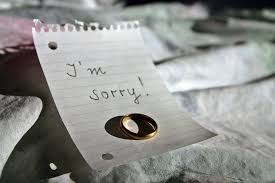Relationship Over – Who gets the engagement ring?

This question is asked not just by couples who are engaged but call the wedding off, but also by couples that separate after they are married. Nowadays, the position is also further complicated because often couples are residing together before they marry, or remain living together and do not marry.
The law in respect to engagement rings needs to be considered in the following contexts:
- Couples that become engaged but do not live together before marriage (traditional engagement);
- Couples that live together, become engaged but they do not marry (de facto couples);
- Couples that get engaged live together and then marry (married couples).
Traditional Engagement
When a person breaks off an engagement, this can be seen as a breach of a promise to marry. Whilst under the Marriage Act, a person can no longer sue for damages linked to social or economic loss arising out of a breach of a promise to marry, this doesn’t apply to gifts, like an engagement ring, given in anticipation of a marriage.
In a NSW case of Papathanasopoulos v Vacopoulos, Mr Vacopoulos (Mr V) gave Ms Papthanasopoulos (Ms P) a $15,250.00 engagement ring. About 10 days later on 26 August, Ms P called off the engagement telling Mr V “the wedding is off, here take the ring, I don’t want it.” She then removed the ring and put it on the coffee table in front of Mr V and Mr V said to her “I don’t want the ring, it is a gift to you, you can keep it”. About 30 minutes later Mr V left the house without the ring, and Ms P put it in a box with other items symbolic of their relationship in her wardrobe. On 29 August Ms P told Mr V she didn’t want the engagement gifts from his side of the family and he should collect them. On 29 September Mr V telephoned Ms P telling her he wanted to get back together. Ms P refused and that day rang her mother and told her she wanted to throw out all items Mr V had given her. Ms P’s father, later that day, threw the box with the engagement ring in the garbage. When Mr V found out, he began proceedings for compensation.
The Court found an engagement ring is a ‘conditional gift’ given to someone on the condition that they will get married. When they failed to do so, it must be returned unless there is legal justification not to. Ms P was found liable for the cost of the ring and ordered to pay compensation.
The Court summarised the principles as follows:
- If a woman, who has received a ring in contemplation of marriage, refuses to fulfil the conditions of the gift, she must return the ring.
- If a man refuses to carry out his promise of marriage, without legal justification, he cannot demand the return of the ring.
- It is irrelevant whether the denial of the promise turns out to benefit both parties.
- If the engagement is ended by mutual consent, then in the absence of any agreement to the contrary, the engagement ring and similar gifts must be returned by each party to the other.
- It may be possible for a woman to raise ‘legal justification’ for refusal to carry out her promise of marriage if there is ‘repudiatory ’ conduct on the man’s part, such as violence or an affair, in which case it may be possible for her to keep the ring.
Married Couples and De facto Couples
When married couples or de facto couples separate, the Family Law Act applies. This means that the engagement ring is classed as property and is added into the property pool available for distribution between the parties. This means that the question of who is entitled to the engagement ring will depend upon a range of factors including:
- the value of the engagement ring, and the total value of the property pool;
- the length of the relationship and/or marriage;
- the financial and non-financial contributions made by each party during the relationship;
- each party’s future needs as they emerge from the relationship following separation.
As is the case with other items of property in the property pool, the value of the engagement ring for the purposes of property settlement is the current second hand value which is often much lower than the purchase price. Understanding this, and given the sentimental value of engagement rings generally, they are typically excluded from the property settlement negotiations because the ring giver decides not to raise it during negotiations.
However, if either party does raise the issue, because the ring is property, it is added into the total value of property of the relationship available for distribution, and the total property pool will be divided up either by agreement between the parties, or failing agreement by Court Order. Accordingly, how the engagement ring is dealt with in the property settlement will differ on a case by case basis.
Conclusion
If you or anyone you know requires assistance with a property settlement or any other family law issues, please contact one of our experienced Family Lawyers, Oliver Hagen or Ken Gray on 02 4731 5899 or email familylaw@batemanbattersby.com.au.
Download PDF Version:
Relationship Over - Who gets the engagement ring?